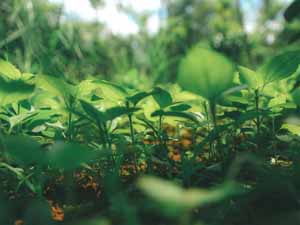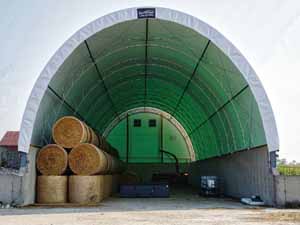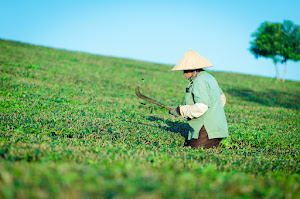Are you a student and searching for farming activities for students? If yes, then you are in the right place. Here we are going to discuss more about the farming activities for students with it’s importance and some challenges.
Actually, farming is not just a source or way of food production, rather it is a way of life and is also a valuable educational tool. And there has been a growing interest in incorporating farming activities into the education of students in the recent years.
These activities offer a hands-on learning experience that can be both fun and educational. Here we are trying to explore the various benefits of farming activities for students and trying to provide practical ideas for integrating them into the curriculum.
The Importance of Farming Education
It is very important to consider and learn why farming education is essential for students. Many children are growing up in urban environments, in today’s modern world.
They are disconnected from the natural world and the origins of their food. Farming activities for students can bridge this gap and provide several significant benefits.
1. Environmental Awareness
Farming activities expose students to the environment and help them understand the importance of sustainable agriculture. They learn about the ecosystem, the role of pollinators, soil health, and the impact of human activities on the environment.
And learning about these will help them to be aware about environment, and this will help to save our environment.
2. Healthy Eating Habits
When students engage in farming activities, they gain a better understanding of where their food comes from and are more likely to make healthy food choices. This knowledge can lead to improved nutrition and overall well-being.
In modern days, most of the children are living and growing up in urban environments and they are mostly not aware about where there food come from. Farming activities for students can bring a big change in this condition and help them to learn practically.
3. Hands-on Learning
Farming activities provide a hands-on learning experience that complements classroom instruction. Students can apply concepts from science, math, and other subjects in a real-world context.

Working on school garden or home garden will help the students to learn practically about different farming practices.
4. Life Skills
Students develop essential life skills through farming, such as responsibility, teamwork, problem-solving, and time management. These skills are transferable and valuable in various aspects of their lives.
And if they can use these skills in their daily life, they will be able to do better in their life.
5. Connection to Nature
Farming activities foster a deeper connection to nature, encouraging students to appreciate the natural world and become better stewards of the environment. And this is very important for saving the environment.
6. Happiness
Farming activities and connecting to the nature is really relaxing and enjoyable. If students start farming, they will be happy, active and live a good life.
Practical Farming Activities for Students
Here we are trying to explore some practical farming activities for students. These activities can be adapted for various age groups and educational settings.
1. School Garden
Creating a school garden is one of the most popular and effective ways to introduce farming activities to students. The school garden can be either small or large, depending on the available space. Students can plant vegetables, herbs, flowers, and even fruit trees. They are responsible for planting, watering, weeding, and harvesting the garden. This hands-on experience allows them to learn about plant life cycles, soil health, and the importance of nurturing living things.
2. Composting
Composting is an excellent way to teach students about recycling organic waste and enriching the soil. Students can collect kitchen scraps, leaves, and other organic materials to create compost bins. They will observe the decomposition process and learn how compost improves soil fertility. This activity also promotes environmental consciousness and waste reduction. Doing this is also very important for saving our environment.
3. Raising Chickens or Ducks
Raising chickens or ducks on school grounds or in backyard can be a fascinating and educational experience. Students can learn about animal care, biology, and the food production process. They will be responsible for feeding, cleaning, and maintaining the coop. Along with this, they can collect eggs, observe the hatching process, and study bird behavior. Doing this will encourage them and make them happy.
3. Beekeeping
Beekeeping is a captivating farming activity that teaches students about pollinators, biodiversity, and the importance of bees in food production. While beekeeping may require more resources and expertise, it can be a valuable addition to the curriculum. Students can learn about hive maintenance, honey extraction, and the critical role of bees in agriculture.
4. Hydroponics and Aquaponics
For schools with limited outdoor space, hydroponics and aquaponics systems offer alternative farming activities. Hydroponics involves growing plants in nutrient-rich water, while aquaponics combines hydroponics with fish cultivation. These systems are very effective and teach students about sustainable farming practices, water conservation, and the nutrient cycle in ecosystems.
5. Farm Visits
Organizing field trips to local farms provides students with practical knowledge and encouragement. Students can interact with farmers, learn about different crops and animals, and gain insights into modern farming practices. Farm visits also encourage questions and discussions about food production and sustainability. And all these are very important for learning and enhanching their knowledge.
6. Farmer’s Market Projects
Engage students in projects related to farmer’s markets. They can research local produce, create marketing materials, and even set up a mini-market at school events. This activity teaches entrepreneurship, marketing, and the value of supporting local agriculture. At the same time, this activity will help them to stay happy.
7. Farm-to-Table Cooking
Combine farming activities with culinary education by incorporating farm-to-table cooking into the curriculum. This is a very useful and effective activity.

Students can use the produce they grow to prepare nutritious meals. This activity promotes healthy eating habits and culinary skills.
8. Agricultural Science Fair
Organize an agricultural science fair where students can showcase their farming projects and research findings. This event encourages creativity, critical thinking, and public speaking skills.
It also allows students to share their knowledge and passion for farming with their peers and the community. Such activity is also very helpful for the local farmers.
9. Community Engagement
Encourage students to engage with the community by organizing farm-related outreach programs. They can participate in community gardens, volunteer at local farms, or educate others about sustainable farming practices. This fosters a sense of civic responsibility and promotes positive community relationships. And the local farmers will also be able to learn something useful.






